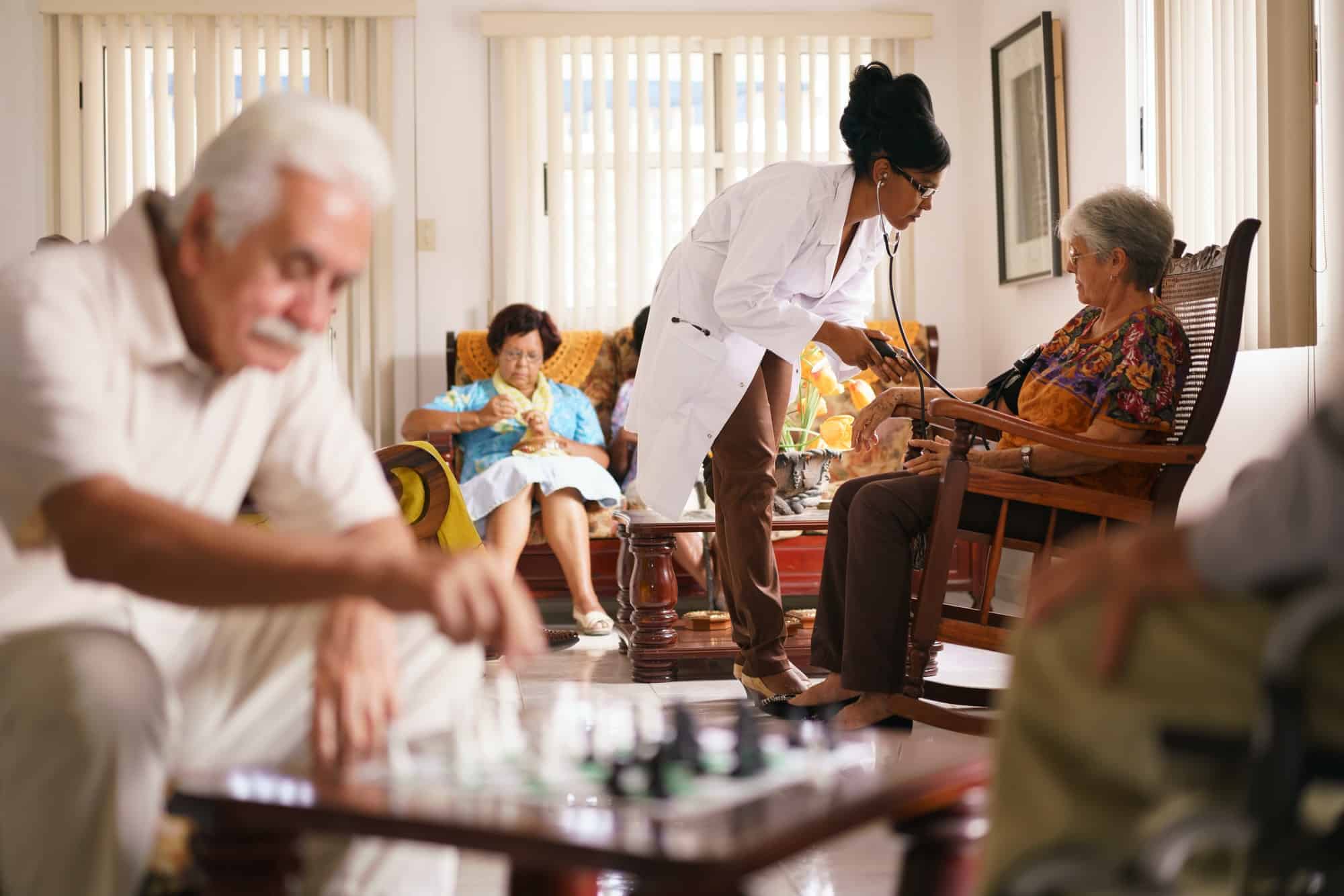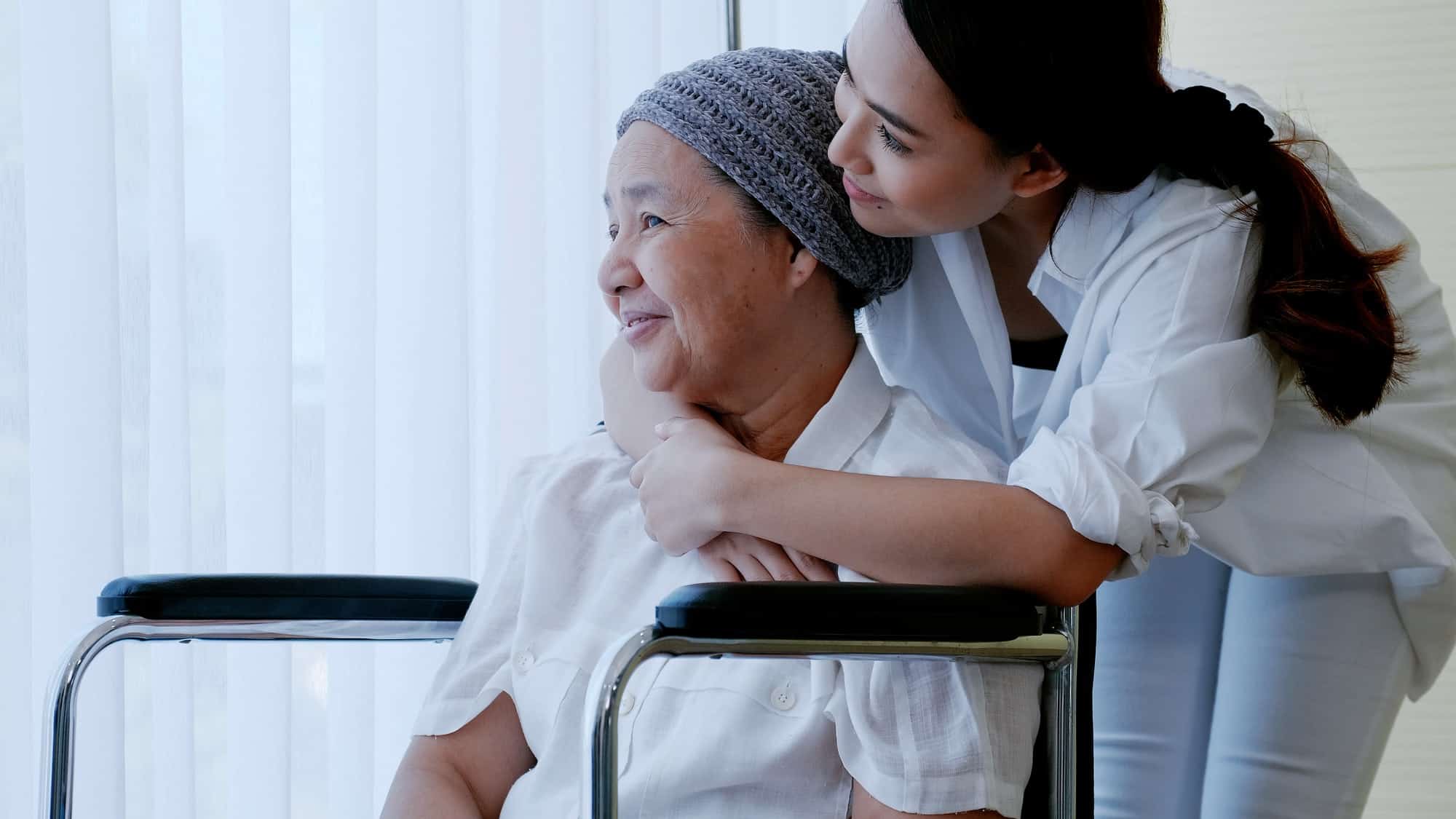Are you a professional home caregiver? Or taking care of a loved one or friend during their end-of-life transition?
In either case, recharging your batteries is crucial for handling home caregiving tasks. This is because caregiving in a person’s home can drain anyone, both emotionally and physically.
For family members, caregiving can lead to even more pressures, such as family conflict, financial strain, and social withdrawal.
Over time, the pressure from caregiving can lead to stress, which can cause burnout.
If this describes you, today’s article is dedicated to you, the humble person who has dedicated their time to looking after the wellbeing of a loved one, friend, family member, or neighbor.
Home Caregiving Is Rewarding But Stressful
Home caregivers can get a sense of reward out of handling someone’s special care and performing everyday home caregiving tasks.
This reward is usually first seen in the joy and satisfaction that they feel when they aid someone in need and lend a helping hand to people who need their help.
This internal reward is soul-lifting and gratifying, but it is also easy to forget this feeling after days, weeks, or months go by and the helpless individual is still dependent upon you for daily care.
The reason is the work of caregiving is stressful and can be very demanding. In fact, the demands involved may add up so much that even the most resilient person can feel like giving up.
Therefore, it is important for a home caregiver to prioritize his personal wellbeing and self-care. Think about it. When you break down or burn out as a home caregiver, it becomes impossible to show care and compassion for others.
Where do you begin? This article details 7 effective tips to help kick start your care journey.
Home Care Givers – 7 Self Care Tips That Work Wonders
1) Be Kind To Yourself And Make Your Wellbeing A Priority
The first tip to dealing with home caregiving stress is to prioritize your wellbeing. Too often, many home caregivers try to postpone their happiness. They always see happiness as a futuristic experience that should happen at a more convenient time, but it’s important to be happy now.
Others may decide their happiness will be achieved only at the completion of a milestone.
This practice, though common with home caregivers, is wrong! Being kind to yourself and prioritizing your own wellbeing is an essential foundation to self-care.
For this reason, do all you can do to live in the present moment. Prioritize your personal wellbeing and treat yourself with compassion.
Start by being kind to yourself. Banish your taskmaster and stop any negative self-talk. Try not to feel guilty for certain feelings you may have – it is normal to feel resentful at times.
Pick up the phone and call a friend or join a Facebook group if you need to vent. And treat yourself lovingly with positive affirmations, soothing music, or fragrances that calm your stress and keep you centered.
2) Take A Personal Inventory
Taking a personal inventory is another effective tip home caregivers can employ for their self care. Beginning the journey to self-care often times looks like an impossible task to pull through. Sometimes, a home caregiver may find himself stuck on where to proceed.
If this is the case with you, start by taking a personal inventory. You can examine 3 major aspects of your wellbeing – spiritual, mental, and physical. When you are done, rank them on a scale from 1 to 10. If any particular area ranks below 5, prioritize it as an initial area that needs improvement.
Then, do your best to improve your physical or mental wellbeing in the main focus areas.
3) Establish A Profitable Morning Ritual
Time is a barrier for most people. People who are not caregivers aren’t exempt from this either. It’s just even more of a challenge for someone who is not only responsible for themselves, but for the wellbeing of another.
However, allocating just 10 minutes of your time to do a beneficial morning ritual can impact you greatly.
The goal is to dedicate 10 minutes toward a morning ritual to enlighten your mood and improve your general outlook on life.
It is also poised at tending to your spiritual, mental, and physical wellness. Take this time seriously.
It can help put you in the proper mood for the rest of the day, which can no doubt be challenging if you’re caring for someone in their home who can not take proper care of themselves.
Some exercises to consider are engaging in writing down personal development goals, meditation, stretching, or exercise that lead to relaxation and increased energy.
4) Try Guided Meditation And Mind-Body Exercises
Give attention to guided meditation and other mind-body practices like yoga, tai chi, deep relaxation techniques, etc. These exercises have the potential to significantly improve your peace of mind.
Guided meditation is widely shown to reduce stress and increase happiness.
It helps to improve concentration, while also positively impacting the cardiovascular and immune system of the body.
Meanwhile, it may be difficult to get your mind to calm itself due to distractions. Nonetheless, the minutes spent on meditation are never a waste.
That short time can provide the calm alertness needed to motivate you to continue your journey of discovering a healthier, happier life. There are plenty of apps like Headspace and Calm to help you get started.

5) Trust Respite Care To Fill In For You
You may find it hard to imagine leaving your loved one in someone else’s care.
Notwithstanding, taking a break can be one of the best things you can do for yourself. This also goes for the person you’re caring for.
Many don’t realize that Medicare and Medicaid provide up to five days of respite care during a six-month period. This is 100% covered and can give caregivers a needed break or vacation.
In-home respite care allows nurses to come to your home to provide companionship, pain relief, medical services, and emotional support.
Many don’t realize that Medicare and Medicaid provide up to five days of respite care during a six-month period.
This is 100% covered and can give caregivers a needed break or vacation. Book a Discovery call at Ameriprimehospice.com to discuss respite care today.
Short-term nursing homes – assist in helping living homes, nursing homes and memory care homes accept people needing care.
That is usually for short stays while the primary caregivers are away or taking a break.
6) Set Up A Happiness List And Practice It
When a home caregiver is consumed with the wellbeing of others, he can easily forget the things that keep him joyful.
That’s why it’s important to create a happiness list of about 10-20 items. Afterward, identify the things that cost money and those that do not.
Then, give yourself permission to engage and enjoy yourself with the items on your list. Do it even if the item on the list costs money. It will be worth the small amount you spend in order to achieve a happier existence.
Remember, you are a hard-working home caregiver. So, an occasional treat is a good self-care investment towards your own happiness.
This could be making a flower arrangement or watching your favorite TV show or walking a pet.
Whether it is a walk around the park, or a manicure, or a movie night out with someone you care about…pick a few items on your list and practice it at least once a week. This could make all the difference.
If possible, you can even choose an item from your list and do it every single day.
7) Create A Daily Self-Care Log
Use a daily self-care log as a tool to help you summarize the different aspects of your self-care. This self-care log should be broken down with the essential components of your day that contributes to your total wellness.
Try to keep track of these daily self-care items listed below. Afterward, monitor changes in your behavior and see how the changes affect your overall wellbeing. Some things you may want to keep note of are:
-Meals for the day
-Physical activity
-Medications
-Sleep
-Daily goals
-End of day recap
-Goals for tomorrow
(You can add more as you see fit)
We are Here to Help
There are many ways you can practice self-care as a home caregiver or provider for a terminally ill or very sick or weak person.
Carefully go through the list of self-care tips detailed in this article. Find out what works to relieve your stress and reduce your mental state to avoid burnout.
When you find yours, attempt to practice them. This will help you stay active, feeling happy and energized. and at the same time, improve your ability to care for others.
For more tips for a happier life, stay tuned to our blog. We are always thinking of interesting topics that are sure to hit home with our patients, or future patients, and even the stay-at-home caregivers or nurses who support these folks every day.
Lastly, should you need a break from it all – give us a call. We can either help walk you through it to keep you sane and mentally healthy or we can even step in to provide loving care in your absence should you need a break.
There is no shame in asking for help and in most cases, Medicare or Medicaid pays for your loved one’s in-home respite care.
It’s a win-win and we promise we will treat your family member or friend just as well as you would yourself.
As always, the compassionate and friendly staff at Ameriprime Hospice are here for you, serving Dallas-Ft. Worth and surrounding communities.
Bless you, for the sacrifice and caring support you give each day.




